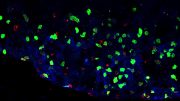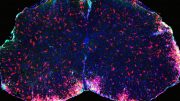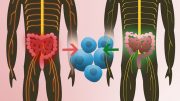
Scientists have identified three genes and their expressed proteins that may be involved in the pathogenesis of multiple sclerosis. In the study, investigators discovered different expression levels of the SHMT1, FAM120B, and ICA1L genes (and their proteins) in the brain tissues of multiple sclerosis patients versus controls.
New research published in the Annals of Clinical and Translational Neurology on December 7 has identified three genes and their expressed proteins that may be involved in the pathogenesis of multiple sclerosis.
By comparing information on the genes and proteins expressed in the brains of thousands of individuals with and without multiple sclerosis, investigators discovered different expression levels of the SHMT1, FAM120B, and ICA1L genes (and their proteins) in brain tissues of patients versus controls.
Studying the functions of these genes may uncover new information on the mechanisms involved in the development and progression of multiple sclerosis. “Our findings shed new light on the pathogenesis of MS and prioritized promising targets for future therapy research,” the authors wrote.
Reference: “Brain proteome-wide association study linking-genes in multiple sclerosis pathogenesis” by Tingting Jia, Yanni Ma, Fengqin Qin, Feng Han and Chengcheng Zhang, 7 December 2022, Annals of Clinical and Translational Neurology.
DOI: 10.1002/acn3.51699









Be the first to comment on "Brain Tissue Study Uncovers New Genes Linked to Multiple Sclerosis"